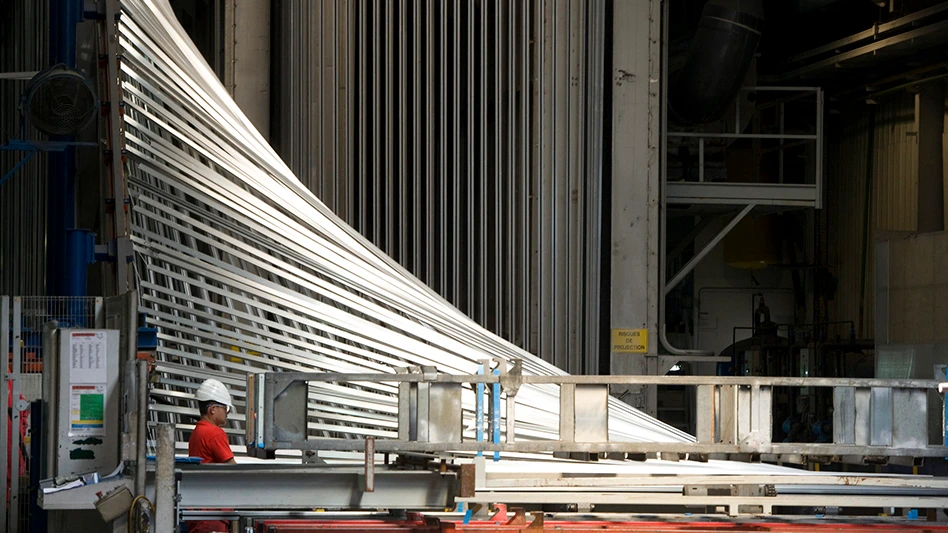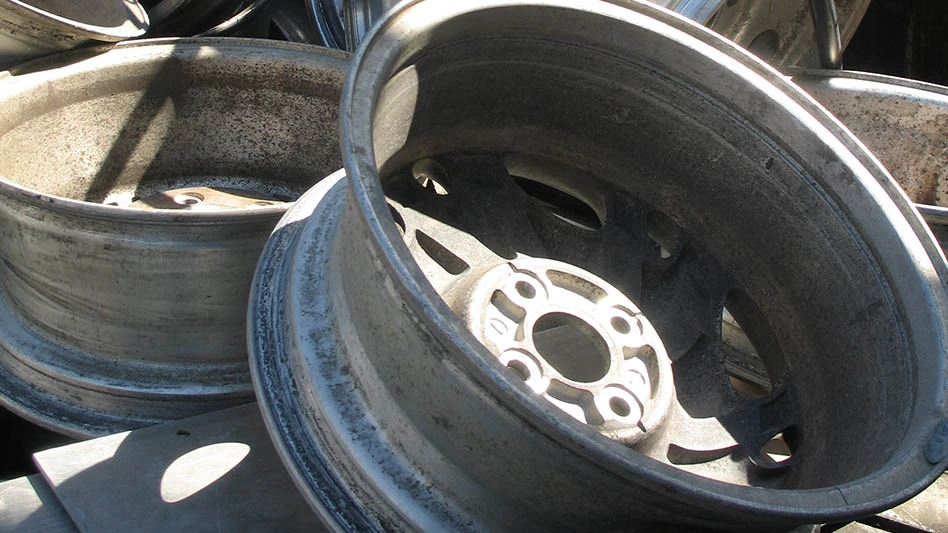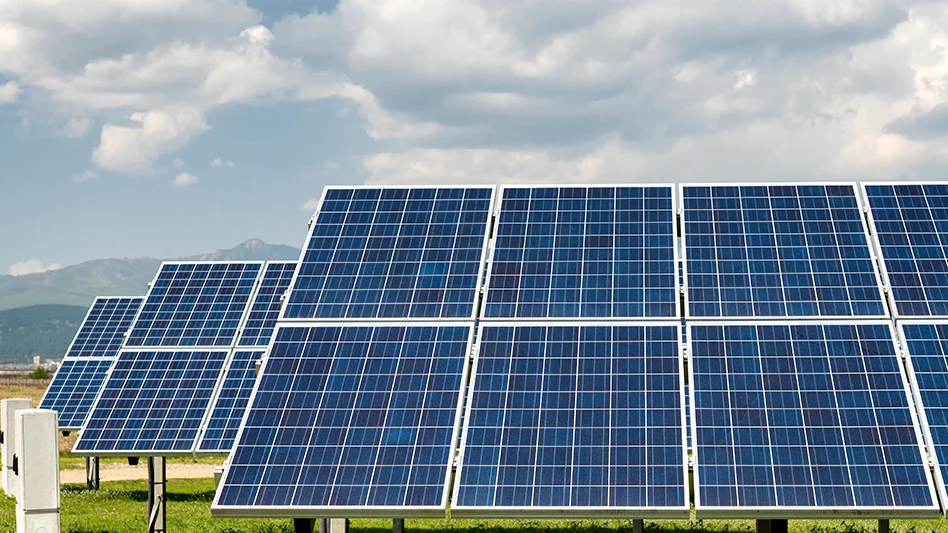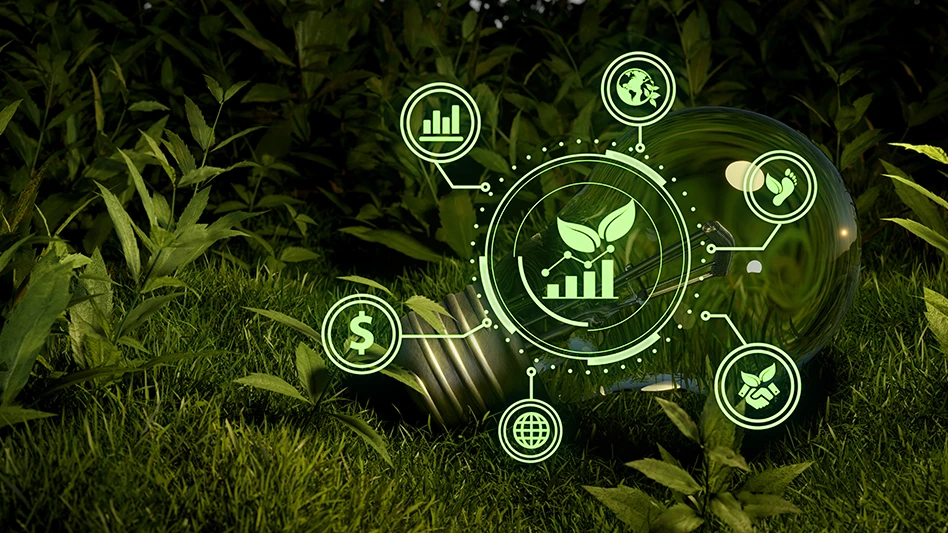
Photo courtesy of Hydro
Norway-based Hydro’s adjusted earnings before interest, taxes, depreciation and amortization (EBITDA) for the third quarter totaled 3,899 million kroner, or $349.4 million, a reduction from 9,721 million kroner, or $871.1 million, the company reported for the third quarter of 2022.
The company attributes the decrease to lower aluminum and alumina sales prices, lower extrusions and recycling volumes, reduced CO2 compensation and a provision for a multiyear social donation in Brazil. These factors were somewhat offset by lower raw material costs, Hydro adds.
In the recently completed third quarter, economic growth faced challenges from rapid monetary tightening, pressuring household spending and business investments. While Chinese aluminum demand is stronger than expected thanks to the renewables and electric vehicle (EV) segments, global demand has remained weak for the residential building and construction and industrial segments, while demand for automotive has been more stable. However, Hydro says in North America, trailer and automotive build rates have slowed and could be further reduced by the United Auto Workers (UAW) strike, which began in mid-September and continues as of late October.
“Hydro is responding to declining markets with firm mitigating measures,” Hydro President and CEO Hilde Merete Aasheim says. “Within Hydro Extrusions and recycling, we are using our production flexibility and adaption abilities to maneuver in weaker markets.”
The company says its strategic hedging program is further supporting margins, with 440,000 metric tons currently hedged at a London Metal Exchange (LME) price of $2,500 per metric ton in 2024 and 300,000 metric tons hedged at an LME of $2,400 per metric ton in 2025.
Hydro says it was surprised by the 2024 Norwegian national budget proposal, released Oct. 6, which had made significant changes to industrial and power development conditions. The CO2 Compensation Scheme, designed to safeguard European industrial competitiveness, could see the CO2 price floor rise from 200 kroner to 375 kroner per metric ton (roughly $18 to $34), negatively affecting Hydro by 1 billion kroner, or $89.61 million, annually. Additionally, a 35 percent resource rent tax on wind power profits is proposed for 2024. This tax could hinder investment in renewable capacity expansion, the company says, adding that these changes are being negotiated and await parliamentary approval.
“We are surprised and disappointed the government has once again chosen to weaken the competitiveness of the industry by cutting the established CO2 compensation scheme," Aasheim says. "This is unfortunate and it undermines the predictability of Norwegian industrial policy.”
Investing in low-carbon aluminum
According to its 2025 strategy, Hydro says it continues to strengthen its position in low-carbon aluminum and to grow in attractive market segments. Hydro Extrusions has inaugurated three new presses in Suzhou, China; Trzcianka, Poland; and Nenzing, Austria, strengthening its portfolio of extrusion capacity aimed at industries such as automotive and electric vehicles and building and construction. The company says the Hydro Extrusions’ growth strategy is aimed at expanding with the market, particularly focusing on segments where Hydro has a competitive edge. The company’s Extrusions business unit has a 8 billion kroner, or $71.7 million, EBITDA target.
Hydro also aims to add 1 million metric tons of new recycling capacity to the portfolio by 2027, primarily in Europe and North America, to meet growing demand for recycled aluminum. Hydro announced the opening of the HyForge casting line in Rackwitz, Germany, on Sept. 14, expanding capacity to supply the automotive industry with low-carbon recycled aluminum from postconsumer scrap. Additionally, the greenfield recycling plant in Cassopolis, Michigan, is progressing as planned, according to the company. Equipment is being commissioned, and the first metal is expected to be produced by November. Hydro expects the plant to be in full operation by the second quarter of next year after a gradual ramp-up during the first quarter.
The share purchase for the Polish recycler Alumetal S.A. was settled July 7, resulting in 275,000 additional metric tons of annual recycling capacity, a solid recycling position in Europe and advanced sorting and casting capabilities, the company says. During the third quarter, the company said it would invest to modernize and expand the Alumetal recycling plant in Kęty, Poland, by approximately 30,000 metric tons of foundry alloys for the automotive market. In addition to the Kęty investments, the company has identified several synergy potentials with a potential EBITDA uplift ranging from 10 euros to 15 million euros ($10.6 million to $15.9 million) by 2027.
Additional investments
Hydro says it wants to contribute to economic and social development in the communities where it operates and is therefore contributing to build six “peace houses” through the TerPaz program in the state of Pará, Brazil. The company has committed to donate approximately NOK 500 million, or $ 44.8 million, for the next three years.
Hydro initiated a new share buyback program Sept. 22, that covers a purchase of up to 100 million shares with a maximum value of 2,000 million kroner, $179.2 million, inclusive of the proportional redemption of shares owned by the Norwegian state. As of Oct. 17, Hydro had purchased 3,719,484 of its own shares and owns a total of 18,816,362 shares, corresponding to 0.92 percent of Hydro’s share capital.
Segment performance
Third-quarter 2023 adjusted EBITDA for Bauxite & Alumina decreased compared with the third quarter of last year. Lower alumina sales prices, currency, and the TerPaz peace house expenses were partly offset by lower raw material prices. The average Platts alumina index (PAX) traded in a narrow range between $325 per metric ton and $345 per metric throughout the quarter, ending at $338 per metric ton. Compared to the third quarter of 2022, the average Platts alumina index was stable.
Adjusted EBITDA for Aluminum Metal decreased in the third quarter of 2023 compared with the third quarter of 2022, mainly due to lower all-in metal prices, reduced CO2 compensation and lower contribution from power sales, partly offset by positive currency effects and reduced alumina and carbon cost. Global primary aluminum consumption was up 2 percent compared with the third quarter of 2022, driven by a 3 percent increase in China. The three-month aluminum price increased throughout the third quarter of 2023, starting the quarter at $2,158 per metric ton and ending at $2,347 per metric ton.
Adjusted EBITDA for Metal Markets increased in the third quarter compared with the same quarter last year, Hydro says. Strong results from sourcing and trading activities were partly offset by lower results from recyclers and negative inventory valuation and currency effects.
Extrusions adjusted EBITDA for the third quarter of 2023 was slightly lower than in the same quarter last year, driven by lower sales volumes and higher fixed and variable costs, the company says, positively offset by increased sales margin and currency effects. European demand for extrusions in the quarter is estimated to have decreased by 20 percent compared with the third quarter of 2022 and by 21 percent compared with the second quarter of this year, driven by seasonality.
Demand for residential building and the construction and industrial segments has remained weak in the third quarter, while demand for automotive has been more stable, supported by increased share of electric vehicle registrations over total auto registrations, Hydro says. The solar segment has been negatively affected by supply chain bottlenecks and lower installations.
North American extrusion demand is estimated to have decreased by 17 percent during the third quarter compared with the same quarter last year and by 6 percent compared with the second quarter of 2023. Demand continues to be weak in residential building and the construction and industrial sectors.
“Despite market volatility and geopolitical turmoil, the long-term outlook for aluminum is promising,” Aasheim says. “Toward 2030, Hydro expects significant growth for aluminum, driven by electric vehicles, energy-effective buildings as well as aluminum in infrastructure to support the energy transition.”
Additionally, Hydro signed an agreement with Macquarie Asset Management on Oct. 24 to divest 49.9 percent of Hydro’s renewable energy company, Hydro Rein, allowing Hydro capital-light growth in renewable energy. Through this partnership, Hydro and Macquarie will form a joint venture where Hydro will own 50.1 percent of the company. Macquarie intends to invest equity of $332 million to obtain its ownership stake in Hydro Rein. The transaction values Hydro Rein on a debt-free basis at $333 million as of June 30.
Latest from Recycling Today
- Steer World offers PEX plastic recycling machine
- New recycling grant program launches in Massachusetts
- Tire Recycling Foundation names executive director
- Dock 7 named 2025 Exporter of the Year at New Jersey International Trade Awards
- Waste Connections reports ‘better than expected’ Q1 results
- Commentary: How EPR is transforming the packaging industry
- Acerinox names new North American Stainless CEO
- Greenwave closes 2024 books with red ink





